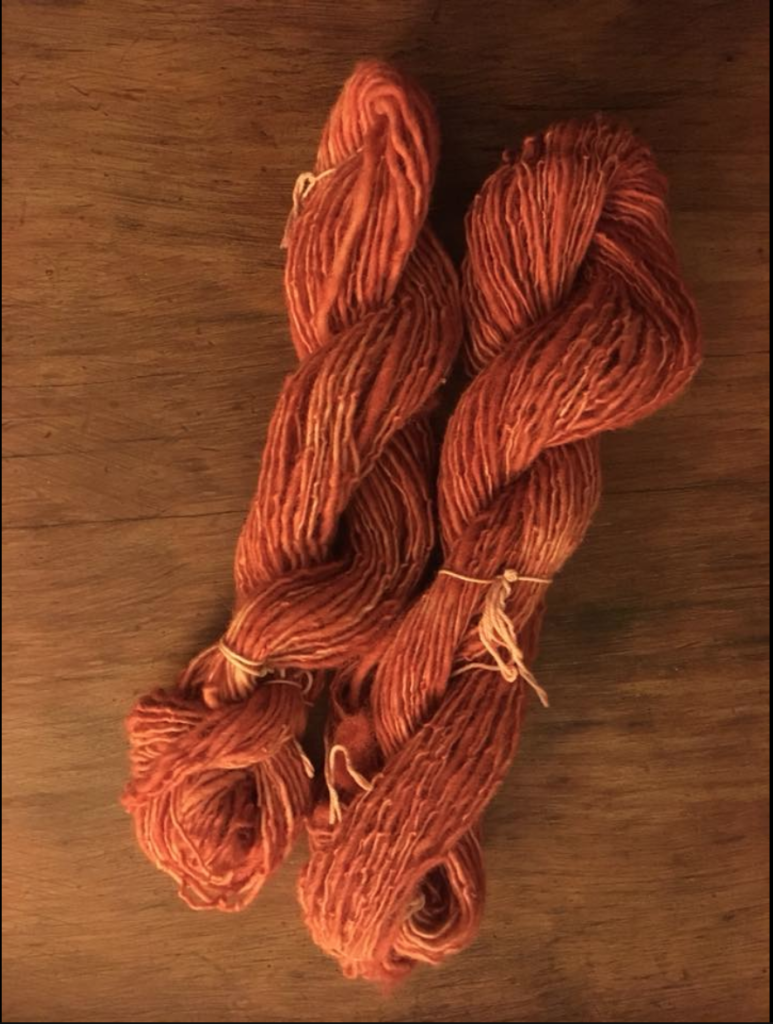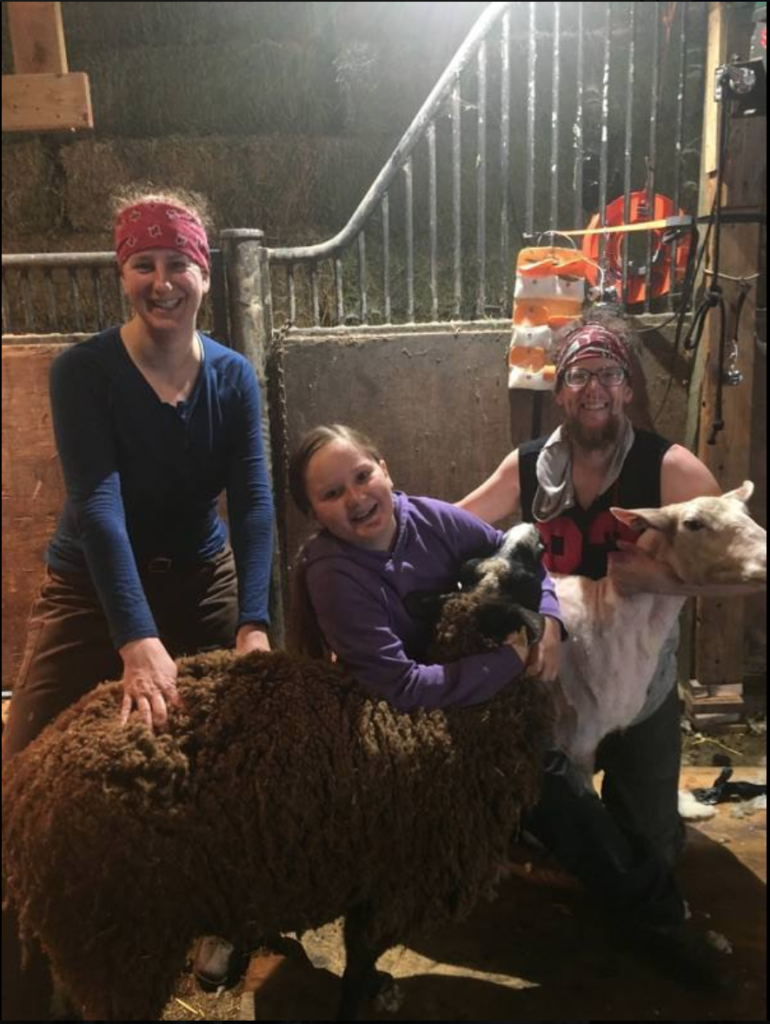Once in a while, an apparently unremarkable thing gives me pause and I think, “That didn’t used to happen.”
In May, for example, I sheared some sheep that I shear every year. At the end of the job, the owner asked the common, perennial question, “What do we do with the wool?”
“My friends own a wool mill about two hours up the road,” I replied. “Actually, I’ll see them next weekend. I can drop the fleeces off, give them your email, and then you can iron out the details and payment between yourselves.”
Just like that.
I had not said, “Wool makes great mulch,” nor had I said, while wiping down my hand piece, “Well, I can tell you how to scour, dry, card, spin and knit it.”
Six years into shearing, I could not only tell people what to do with their wool, but they could get it done locally, affordably, and quite easily. That didn’t used to happen.
I need the glimmers of “That didn’t used to happen.” Without them, I am too easily lost in the land of “Why bother?” On hard days, after a six-month-long shearing slog, one more 300-pound, sticky sheep seems too big to shear, and the toxic textile system too big to change.
A couple of weeks ago, I spent an hour in an REI store. My family was visiting and wanted to buy a few things they’d forgotten to pack. Standing in the women’s wardrobe area, comprised almost entirely of synthetic fibers that, somehow, still managed to get an “eco” tag slapped on, I felt depressed and dejected. Whatever “normal” is, of course, is simply the result of a series of certain human choices. We are not bound to those choices. We can make other ones. But I, for the moment, was surrounded by the choices we’re not making.
I think nothing of feeling bad about things. That’s normal, the guilt (which comes from a conscience) over our daily sins that simply existing creates, whether it’s carbon emissions, microplastic shedding from doing our laundry, toxic dyes and formaldehyde finishes, the slave labor we know but cannot see, a full day’s flight away from our searching eyes, the belching container ships whose flags have nothing to do with country of origin. Things are this way, even though we don’t want them to be this way. We did not choose, but nonetheless have.
I think nothing of feeling bad. It’s the feeling good that gives me pause.
Like when a woman named Jenifer shared a photo of two skeins of yarn. She’d hand spun and dyed them with her homegrown madder:
Her caption read: “First experiment with natural dye. Handspun wool dyed with home grown madder root.” Jenifer had the wool scoured and processed into roving at Mendocino Wool & Fiber, the same place I’d driven fleeces from my shearing job.
And then Jenifer added: “P.S: This is the wool from the shearing you did with Jordan, where Zoe and I helped.” She meant this day:
That beautiful, gleaming skein had come from those happy, dirty shearing days?
Days like this didn’t used to happen, so it is really something when they do. And it was.
That day, we had 100 or so pregnant, Friesian ewes, plus a dozen or two Suffolk. Rain streamed off the eaves outside, creating that perfect smell of rainy soil air. The bright green hills were not yet gold brown, not yet to burn. The owner herded sheep into the poly tunnel out back to keep them dry for shearing while, inside, the piles of wool grew ever higher as we sheared through ever thicker manure and mud.
Jordan and I were relieved to have Jenifer and Zoe’s help. Their presence alone would have been enough, because shearing can be lonely. They were utterly competent and so helpful, Zoe more so than many adults, moving sheep onto the plywood, choosing and moving the next sheep from the pen, keeping the sheep moving along and out of the area after shearing. We all enjoyed a satisfying Mexican dinner after our first long day of work.
That day, with all its joy and loveliness, is wrapped up in those two skeins of yarn. Each beautiful person is right there in it, because they all harvested and produced it.
This, perhaps, threatens on preciousness, on putting too grand a point on things, on making mountains out of molehills. But as my wise friend Jack says, feeling good is enough. It’s not smugness so much as plain appreciation for this beautiful, useful object, and the craft of all the beings that brought it into being.
That skein and the local mill, there for the driving to, did not used to exist, and their existence is critical proof that they can. So I will say, with joy, “That didn’t used to happen” as often as I notice, and as often as I can.


Excellent!
Thank you for sharing such a hopeful, positive, woolly story.
This story was the renewed inspiration I need to get back to having a beautiful flock of wool sheep. Now that the border collie has settled down after 9 years, we can have another go.
And . . . I’m right there with you on the cr*p sold at the outdoor retail stores and in the business clothes sections of women’s department stores. I WANT WOOL in my clothes and on my body !
Great to see the wool going to a local mill and being processed to a useable yarn hence hats, mitts, sweaters etc. I have a mill in Alberta Canada working to this same end. ?